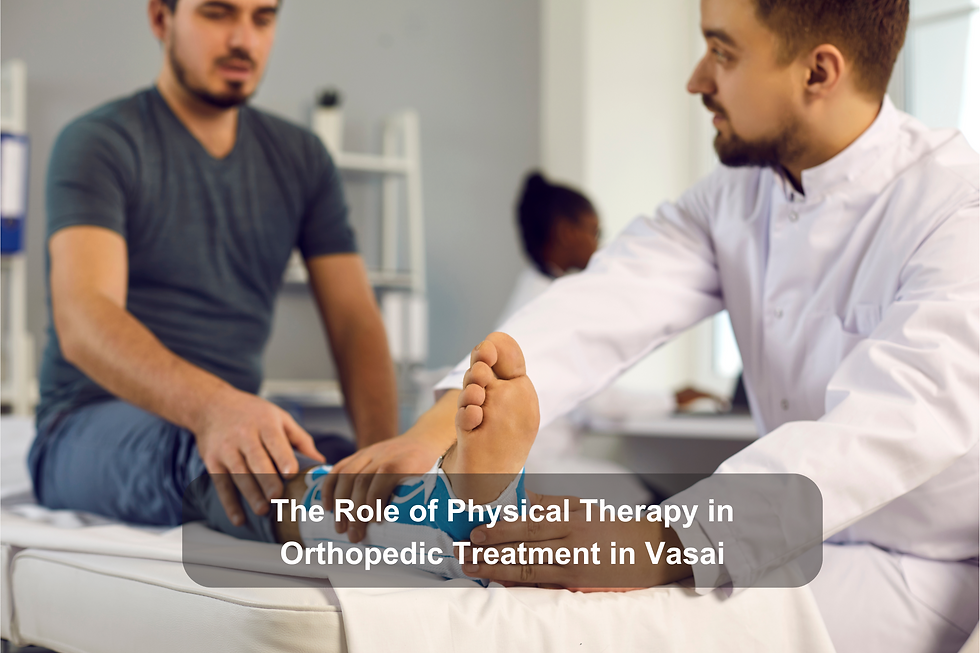Stress and Your Spine: How to Manage the Physical Effects of Chronic Stress
- onespine602
- Aug 22, 2024
- 4 min read

Chronic stress is more than just a mental burden; it can take a significant toll on your physical health, particularly your spine. The connection between stress and spinal health is often overlooked, but understanding this relationship is crucial for anyone seeking long-term relief from back and neck pain. This article explores how stress impacts your spine and offers practical tips on managing these effects.
The Connection Between Stress and Spinal Health
Stress triggers the body's fight-or-flight response, releasing hormones like cortisol and adrenaline. While these hormones are essential in short bursts, chronic stress keeps them elevated, leading to muscle tension, inflammation, and poor posture—all of which can wreak havoc on your spine.
Muscle Tension: One of the most immediate physical responses to stress is muscle tension. When you’re stressed, your muscles, particularly those around the neck, shoulders, and back, tend to tighten. Over time, this can lead to persistent stiffness and discomfort, contributing to conditions such as tension headaches, neck pain, and back pain.
Inflammation: Chronic stress can lead to increased inflammation throughout the body. Inflammation is a key factor in many spinal conditions, including herniated discs and arthritis. If you’re searching for a “back pain doctor near me” or a “neck pain doctor near me,” stress management should be part of your treatment plan.
Poor Posture: Stress often causes people to adopt poor postural habits, such as slouching or hunching over. These habits can strain the spine, leading to chronic back pain and other spinal issues. Over time, poor posture can exacerbate existing spinal conditions or create new ones, making it essential to address stress-related posture problems early.
How to Manage the Physical Effects of Stress on Your Spine :
Managing the physical effects of chronic stress on your spine involves a combination of stress reduction techniques and targeted spinal care. Here are some strategies to help you protect your spine from the damaging effects of stress:
Regular Exercise: Physical activity is one of the most effective ways to manage stress and reduce its impact on your spine. Exercise releases endorphins, which are natural mood boosters that help counteract stress. Activities like yoga, swimming, and walking are particularly beneficial for spinal health, as they improve flexibility, strengthen core muscles, and promote better posture. If you're experiencing persistent back pain, it's essential to consult a “spine doctor near me” before starting any new exercise routine to ensure it's safe and effective for your condition.
Mindful Breathing: Deep breathing exercises can help reduce muscle tension and lower stress levels. Practice mindful breathing by inhaling deeply through your nose, holding the breath for a few seconds, and then exhaling slowly through your mouth. This technique not only calms the mind but also encourages better posture, which can alleviate stress-related spine issues.
Ergonomic Adjustments: Making ergonomic adjustments to your workspace can significantly reduce the physical impact of stress on your spine. Ensure that your chair supports the natural curve of your spine, your computer screen is at eye level, and your feet are flat on the floor. These simple changes can help prevent the poor posture and muscle strain that stress often causes. If you work long hours at a desk, consider taking regular breaks to stretch and move around to prevent stiffness and tension from building up.
Massage Therapy: Regular massage therapy can help alleviate muscle tension and improve blood circulation, reducing the physical effects of stress on your spine. Massage therapy targets the muscles around the neck and back, relieving tension and promoting relaxation. It's also an excellent way to address specific pain points, such as those caused by stress-related muscle knots. If you’re dealing with chronic pain, you might want to consult a “back pain doctor near me” to see if massage therapy is a suitable option for you.
Cognitive Behavioral Therapy (CBT): CBT is a psychological treatment that helps individuals manage stress by changing negative thought patterns. While it's primarily used for mental health, CBT can also have a positive impact on physical health by reducing the muscle tension and inflammation associated with chronic stress. Incorporating CBT into your stress management routine can help alleviate both the mental and physical symptoms of stress, leading to better spinal health.
Proper Sleep: Quality sleep is essential for spinal health, as it allows the body to repair and rejuvenate. Chronic stress often leads to poor sleep quality, which can exacerbate spinal issues. To improve your sleep, establish a regular bedtime routine, avoid caffeine before bed, and ensure your mattress and pillows support your spine correctly. If stress is keeping you awake, consider relaxation techniques such as meditation or a warm bath before bed.
When to See a Specialist :
If you’re experiencing persistent neck or back pain, it’s essential to consult a healthcare professional. Searching for a “neck pain doctor near me” or a “spine doctor near me” can help you find a specialist who can provide a comprehensive evaluation and recommend appropriate back pain treatment options. Early intervention is key to preventing chronic pain and ensuring long-term spinal health.
Conclusion :
Chronic stress can have a profound impact on your spine, leading to muscle tension, inflammation, and poor posture. However, by adopting stress management techniques and seeking professional care when needed, you can protect your spine and improve your overall well-being. Whether it's through regular exercise, mindful breathing, or consulting a “back pain doctor near me,” taking proactive steps to manage stress is essential for maintaining a healthy spine.
Thanks for Read
Also Read : The Benefits of Chiropractic Care for Back Pain


Comments